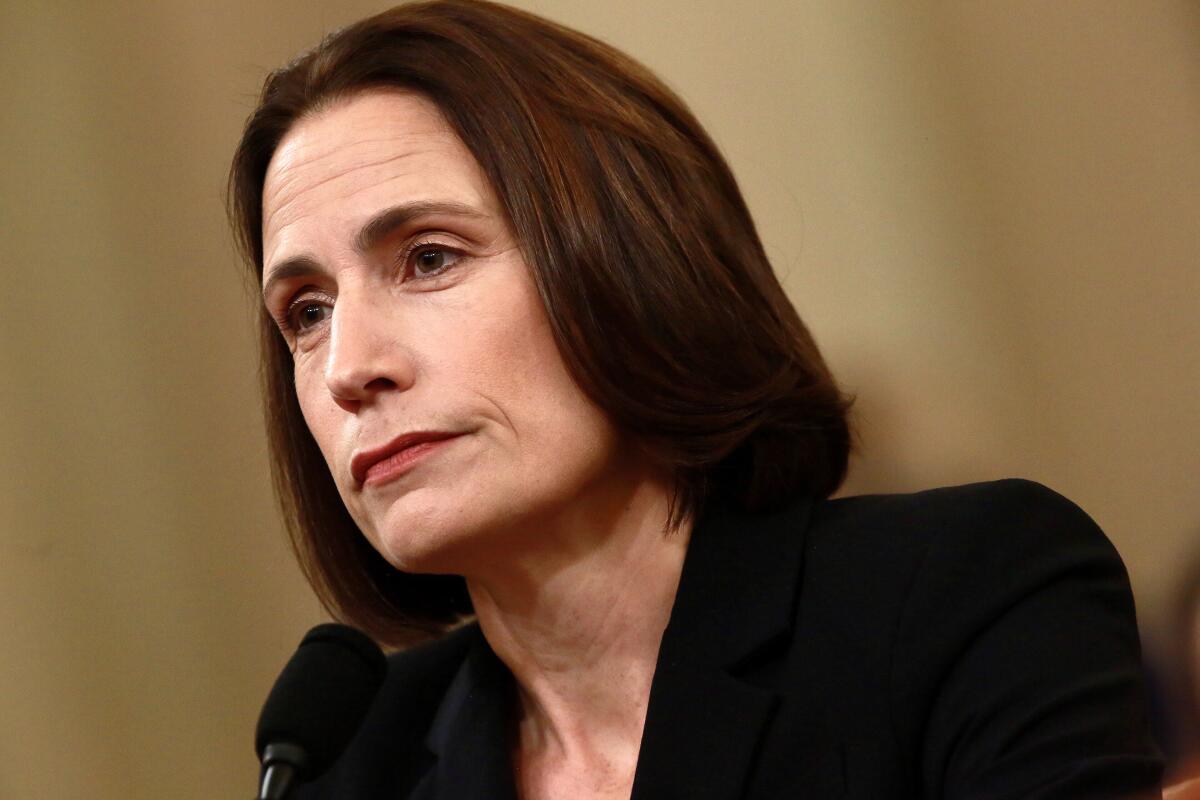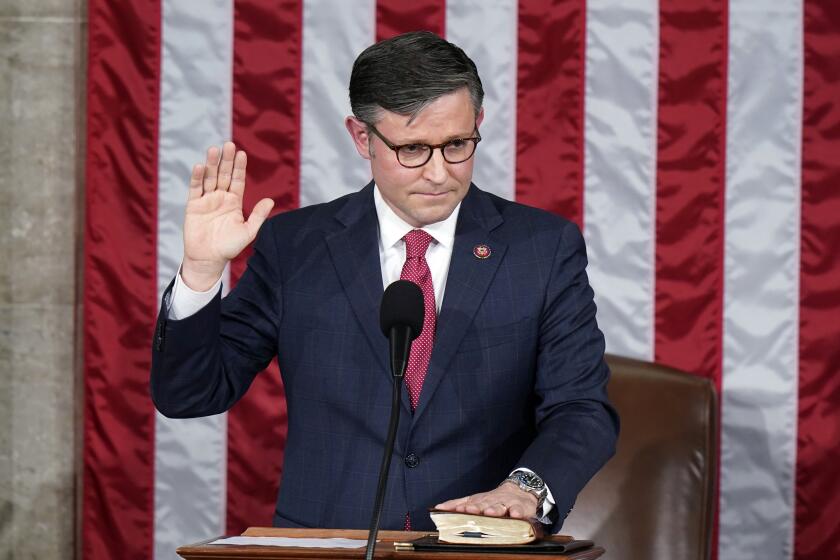Column: Could wars in Ukraine, Gaza bring ‘major changes in the international order’? Fiona Hill thinks so

WASHINGTON — Fiona Hill is worried.
The onetime Russia advisor to then-President Trump fears that support for Ukraine is gradually eroding, encouraging Russian President Vladimir Putin to try to wait the West out.
“Putin feels everything is trending in his favor,” she warns.
But she’s worried about much more than that, beginning with Israel’s war in Gaza, which has made the world more dangerous.
The two conflicts aren’t directly linked, but each is likely to affect the other.
“These could be global-system-shifting wars, something like World War I and World War II, which reflected and produced major changes in the international order,” she said. “In a sense, the Hamas attack on Israel was a kind of Pearl Harbor moment. It opened a second front.”
Most of the world’s major powers have lined up in two opposing coalitions: the United States and its allies on one side; Russia, China and Iran on the other. One of those coalitions is supporting both Ukraine and Israel. The other is not.
The backlash against abortion restrictions has been bigger than expected. Abortions in the U.S. have gone up in the last year. Now, Republicans have a strongly antiabortion speaker.
I met with Hill last week to hear her thoughts on the spreading global crisis.
It was a sobering tour d’horizon, as seen through a Russia-watcher’s eyes.
Let’s begin with Ukraine, which has been fighting for more than a year to secure its independence in the face of a Russian invasion.
The United States and its European allies have provided billions of dollars in weapons and financial aid to help stop Putin’s drive to reconquer the Russian Empire.
But Ukraine’s progress has been maddeningly slow, prompting impatience not only in the U.S., but in Europe as well.
“We put too much weight on Ukraine’s counteroffensive,” Hill said. “This is going to be a long war. Putin thinks we will give up if he holds on long enough.”
The Russian leader is also “clearly waiting for 2024” and the prospect that Trump could return to the White House and cut off aid to Ukraine, she added.
An early test will come in the next few weeks, when Congress considers Biden’s request for $61 billion in new aid for Ukraine. The last time the House of Representatives faced such a request, 93 Republicans voted against it, including the newly elected speaker of the House, Mike Johnson (R-La.).
Now add the second front in the global conflict: Gaza.
“This helps Putin,” Hill said. “It’s going to distract the United States and European supporters of Ukraine.”
It isn’t clear whether any of the weapons the United States is rushing to Israel will come from supplies that had been earmarked for Ukraine. But Biden’s request for $14 billion in aid to Israel makes the burden on Congress and taxpayers look heavier.
The next piece on the global chessboard is China, which Biden — like Trump before him — has identified as the United States’ main competitor.
Under President Xi Jinping, China has strengthened its alliance with Russia.
“China doesn’t want to be stranded alone with no other major power as an ally,” Hill explained. “Xi needs Putin and Putin needs Xi.”
But that creates a problem for the United States, she said: “We’re not going to have any hope of curtailing Russia’s options and getting the Middle East to calm down if we have a super-antagonistic relationship with China.”
She thinks the Biden administration should try a “Nixon to China” effort to reduce animosity, referring to President Nixon‘s opening of a relationship with Mao Zedong in 1972.
Finally, Hill is worried about one more country: the United States, which is heading toward a presidential election as polarized as ever.
Putin isn’t the only world leader waiting to see how 2024 turns out.
“If the rest of the world thinks every time a new government comes along, we are going to tear up agreements we just made, we won’t be looked at as a very reliable partner,” she warned.
Is there anything encouraging in this picture?
Hill has been traveling around the United States for much of the last year, and she says her audiences are “thirsty” for an end to national discord.
In appearances on college campuses and with civic groups, she discusses Russia and foreign policy. But she also talks about her history as a coal miner’s daughter who grew up in poverty in the north of England, but, thanks to hard work and lucky breaks, earned a doctorate at Harvard, became a U.S. citizen and landed a job in the White House.
That personal story has made her passionate about promoting social mobility as the cure for the disaffection that helped elect Trump in 2016.
Along the way, she has noticed something about her adopted country that has surprised her: “We don’t have a unifying national figure who everyone respects.”
In less polarized eras, she noted, the president often enjoyed that stature, but that hasn’t been true for at least a decade.
“Who speaks to the whole country now?” she asked. “Taylor Swift? Arnold Schwarzenegger?”
It’s a good question.
Is there anyone who commands broad bipartisan respect who can knit a fractured country together?
At first, Taylor Swift struck me as a little far-fetched. But on second thought, we could do a lot worse.
More to Read
Get the L.A. Times Politics newsletter
Deeply reported insights into legislation, politics and policy from Sacramento, Washington and beyond. In your inbox three times per week.
You may occasionally receive promotional content from the Los Angeles Times.












